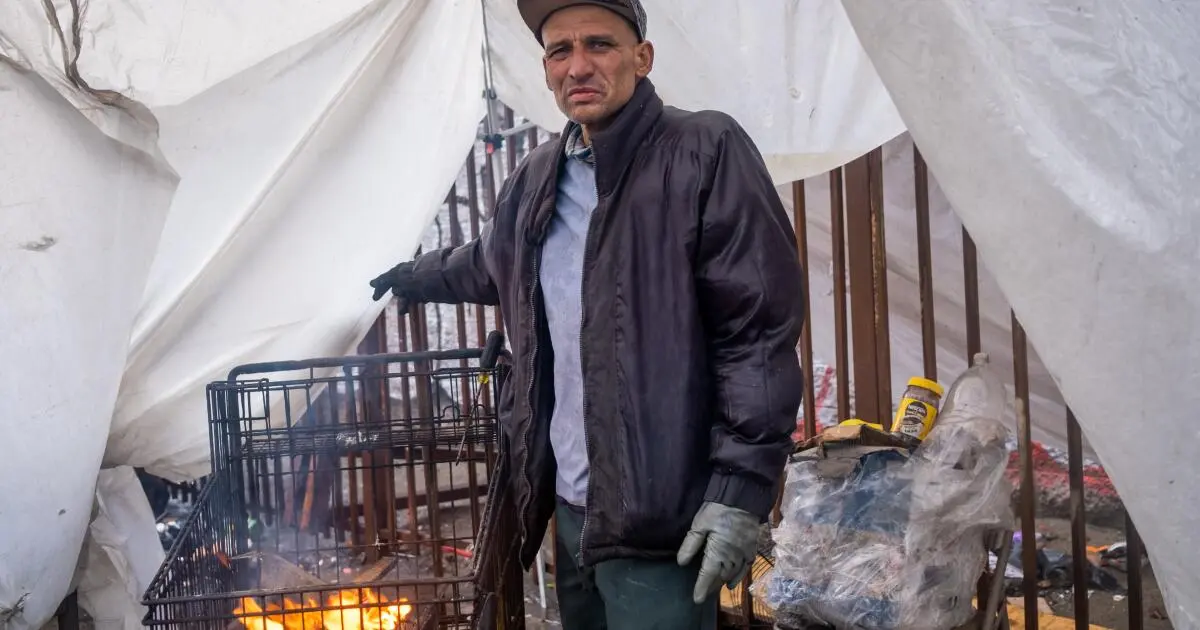$750 a month, no questions asked, improved the lives of homeless people
$750 a month, no questions asked, improved the lives of homeless people

$750 a month, no questions asked, improved the lives of homeless people

If 100 homeless people were given $750 per month for a year, no questions asked, what would they spend it on?
That question was at the core of a controlled study conducted by a San Francisco-based nonprofit and the USC Suzanne Dworak-Peck School of Social Work.
The results were so promising that the researchers decided to publish results after only six months. The answer: food, 36.6%; housing, 19.5%; transportation, 12.7%; clothing, 11.5%; and healthcare, 6.2%, leaving only 13.6% uncategorized.
Those who got the stipend were less likely to be unsheltered after six months and able to meet more of their basic needs than a control group that got no money, and half as likely as the control group to have an episode of being unsheltered.

Giving people money improves their quality of life?
Who would have guessed?
Of course, but it's not a very good experiment for a mass rollout. On a mass scale I hypothsize it will diminish motivation to find a job, thereby reducing the number of taxpayers, and that leads to the big question: who are you taking this money away from? 9 times out of 10 it's middle class folks. 1%ers and corporations can afford to spend the money to get every single tax break, so middle class without those resources will end up paying most of the bill.
I'm glad you came up with a hypothesis, fortunately scientists have already tested your hypothesis (or something very analogous) and failed to prove it, in fact they have indicated the opposite effect.
I hope that in the name of scientific knowledge and progress you take this research into account and change your view based on the available information.
Luckily every study at every scale on UBIs has not found any loss in motivation. What it actually has shown is people use the financial breathing room to train up and get better jobs, thereby societally paying back more than they put in, in the long term. The kind of society that can implement UBI can also tax the rich intelligently and fairly.
It's been calculated multiple times that UBI would have a similar cost to existing welfare programs due to the significantly reduced overhead. Thus whoever pays for UBI are the same ones currently paying for existing welfare.
It might sound backwards but for a lot of people, myself included, not having a job will actually diminish motivation.
The frustration of applying for jobs and going for interviews with no response for months on end only adds to the stress of not having any money which adds up to a “what’s the fucking point?” train of thought, which hasn’t resulted in homelessness for me, but I could see how it would for other people.
There is massive, long term UBI study happening ongoing in Kenya, and the results are extremely positive.
Early findings from the world’s largest UBI study, Dec 6, 2023 by GiveDirectly
The actual paper, Universal Basic Income: Short-Term Results from a Long-Term Experiment in Kenya, Abhijit Banerjee, Michael Faye, Alan Krueger, Paul Niehaus, Tavneet Suri, 15 September 2023
Your hypothesis is an intuitive and common fear, and so has been studied before and found insubstantial, with Canada's "Mincome" experiment being one of the most notable: in the 70s Canada targeted members of a town with a minimum income for five years, and saw results like people opening businesses with loans they could get now that they could cite the income. Where they saw people leaving jobs, it was often for education - their high school enrollment hit 100% for the senior year for the first time ever, due to the kids not needing to help bring in money. It was ended during a fiscal crisis when the government was looking for places to tighten belts. This BBC article is a good read on it, focused on the positive health impact.
It would push people to find better jobs; advocate for better working conditions, and actually have money to spend.
Sure, you can go work at a grocery store part-time while making your $750 for some extra cash. Most of that $750 is gonna go into grocery costs anyway, might as well make some extra money.
I pay enough taxes to support 125 $750 users like this and would gladly pay it, too. 125 people that are better off would have a significant positive impact to a community, and I'm all for it.
Also money that they spend, somewhere at some point would likely be taxed.
Your logic is flawed.
Rogan, is that you?